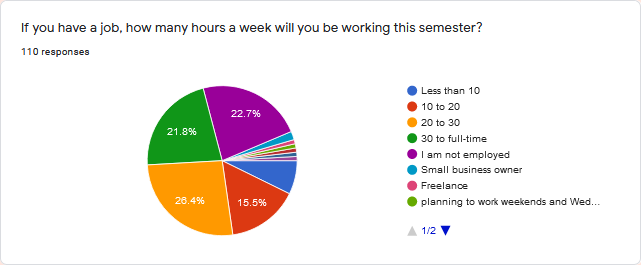Teaching Tuesdays: How I'm Teaching Now: Giving Students Options
- Lance Thurner, PhD

- Feb 23, 2021
- 3 min read
Updated: Feb 23, 2021

The P3 Collaboratory is pleased to introduce “How I'm Teaching Now,” a series highlighting the innovative pedagogical work being done by RU-N instructors. Today’s contribution is from Dr. Lance Thurner (History, SAS-N).

Options.
It’s all about options. Especially in a pandemic.
I teach Latin American history, both in its colonial and modern varieties. These are always Core Curriculum courses, meaning that they are packed beyond capacity with an even array of fresh-people, sophomores, juniors, seniors, and students who break all the molds. My students are a representative cross-section of the student body at Rutgers-Newark, representing (at least this semester) 31 different majors.
Of 110 students, only a small minority fit the definition of the stereotypical “college kid” with little more than sports and social life to detract from their studies. Nearly all of my students are employed, with 52% of them working more than 20 hours a week. One-quarter spend at least 10 hours a week caring for a family member and half of those are full-time caregivers. In attempting to complete college with minimal debt, one-third of them are enrolled in 6 or 7 (or even 8!) courses at a time.


Screen Captures from History of Modern Latin America Early Semester Survey (Spring 2021)
These students are truly exceptional. They are dedicated to education and their intellectual lives and excited about everything Rutgers has to offer them. At the same time, most of them can indulge in college life and academics only to the extent that they successfully fulfill more immediate demands. And COVID hasn’t helped.
That is why my teaching has become all about options. The exigencies of the pandemic inspired me to offer my students multiple options each week so they may choose which conditions fit their preferred learning style and their schedule. Most choose one of several synchronous activities – which they clearly identify as the most enriching – but individual students often then disappear from Zoom for a week or two to participate asynchronously or in small groups when work and life demand more. And work and life often demand more.
Similarly, their assignments arrive in uneven cadences as pressures beyond my purview tighten and release. I don’t doubt (or downplay) their explanations. Instead, I work with them where they are at.
COVID has made clear that it is our responsibility to make college work for them, not the other way around. And that is all about making workable options available to ensure the success of all our students.
Author Bio:
Lance C. Thurner is lecturer in the Federated Department of History at Rutgers University-Newark. He is also the creator of the interactive learning sites Empire’s Progeny and States of Belonging. He can be reached at lancet@rutgers.edu.
Would you like to share how you’re teaching now with the RU-N community? Interested contributors should email p3collaboratory@rutgers.edu with the subject line “How I’m Teaching Now” and include 1) name, department, courses taught in 2020; and 2) a description of proposed essay topic in 2-3 sentences.
------------------------------------------------------
Below is a snapshot of upcoming pedagogical training opportunities available to Rutgers faculty and graduate students:
Applications for the P3’s 7-week ACUE course “"Designing Student-Centered-Courses" (3/22-5/10) are now OPEN. Learn more and apply here.
Teaching and Learning with Technology (TLT) Workshops: February 24 - March 2
Feb 24, 12pm (30 min): Migrating from Blackboard to Canvas: Reading the Exceptions Report
Feb 25, 10am (1 hr): Universal Design for Learning and Inclusive Teaching Strategies
Feb 26, 1pm (1.5 hrs): Online Teaching Best Practices (Synchronous and Asynchronous)
March 1, 1pm (1.5 hrs): Creating Accessible Online Content: Text, Documents, Images, and Video
March 2, 2pm (1 hr): Choosing the Right Tool for the Task
NOTE: TLT has several new workshops in its catalog including “Best Practices for Teaching Humanities Online,” “Best Practices for Teaching STEM Online,” “Visual Design for Online Classes,” and “Best Practices for Lecture Capture and Video.” See the full workshop schedule here.
Academic Technology Services (ATS): February 24 – March 2
Feb 24, 10am: Blackboard to Canvas Migration Walkthrough
Feb 26, 10am: Ask ATS Office Hours
Center for Teaching Advancement & Assessment Research (CTAAR): Febrary 24 - March 2
Feb 24, 10am (1.5 hrs): Reflecting on Online Teaching
March 2, 10am (30 min): Adding Questions in Blue (SIRS) for Faculty







